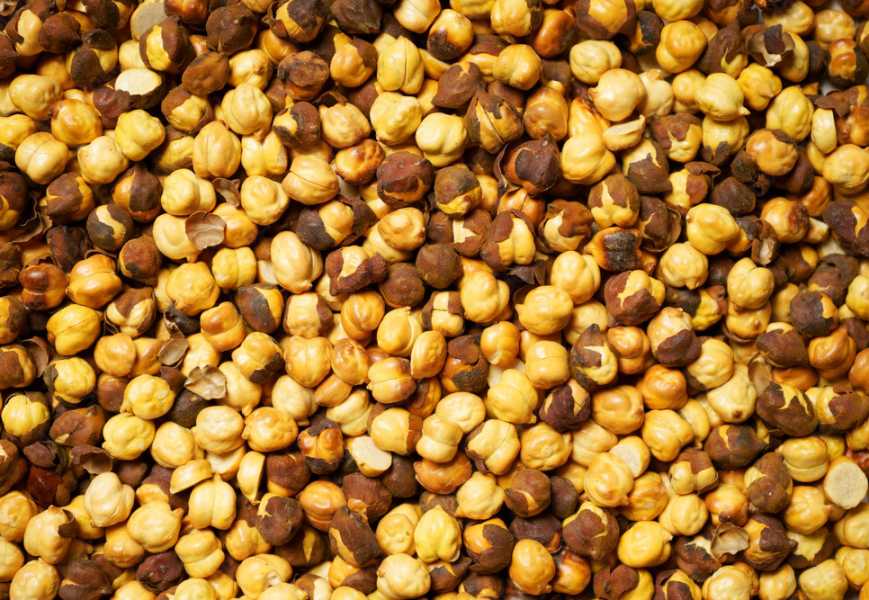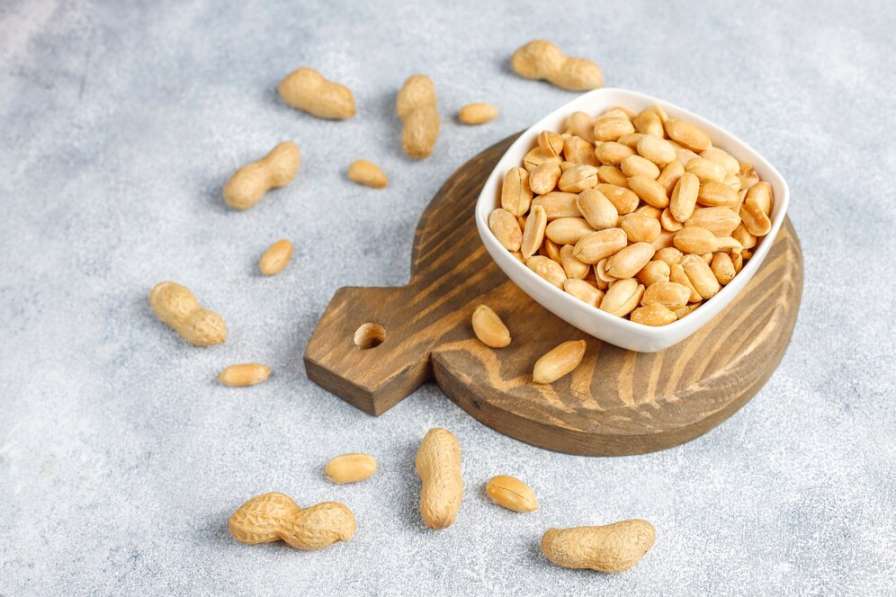Foods for stress relief

- Is your stress level exceedingly high? Snacking may be beneficial. In today’s fast-paced world, we try to be as productive as possible in the short amount of time we have available, but as a result, we forget to pay attention to what is most important, which is our health.
- A nutritious diet that is well-balanced is vital for maintaining good mental and physical health. There are several ways to control and even reduce your stress levels while you’re feeling restricted. Food has the potential to be one of your strongest supporters.
- When you’re worried, it’s critical to pay attention to what you eat because food has the ability to either boost or lower your stress levels. Furthermore, studies show that even modest stress can increase your need for key nutrients such as niacin, magnesium, zinc, calcium, and iron.
- If you don’t control poor eating habits, they can put you at risk for future health problems and increase your stress levels. Anyone can use food as a stress-coping mechanism. There’s no need for expensive medicines or complicated procedures.
best foods for stress relief
1. Nuts
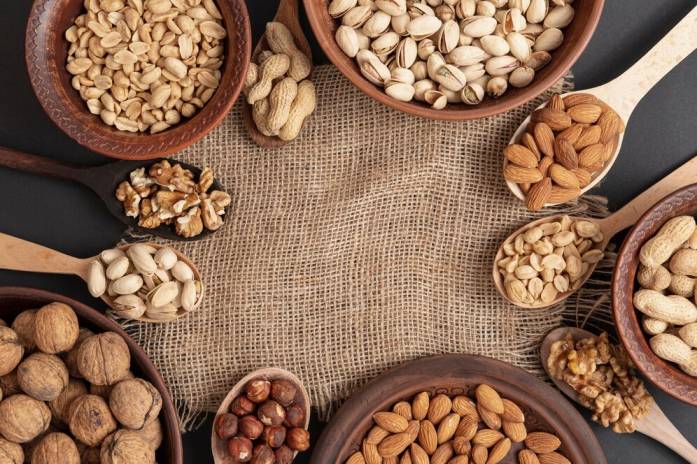
- Nuts are high in minerals, including B vitamins and omega-3 fatty acids. B vitamins are essential components of a balanced diet and can help relieve stress. Almonds, peanuts, pistachios, and walnuts may even help with blood pressure reduction.
- A small 2022 study indicated that walnut eating among college students may have a protective effect against some of the detrimental effects of academic stress. If you want to incorporate nuts into your diet, keep servings to a handful per day to prevent consuming too many calories.
- Instead of going crazy, munch on them. Pistachios, in particular, play a role in stress reduction because they are nutrient-rich, high in B vitamins, and high in beneficial fatty acids. They include magnesium, which has been associated with anxiety reduction. It’s a low-calorie snack that will slow you down while you crack the shell apart to eat the nuts.
- If pistachios aren’t your go-to snack, cashew nuts are a good alternative because they’re high in omega-3s, protein, and zinc.
2. Tea
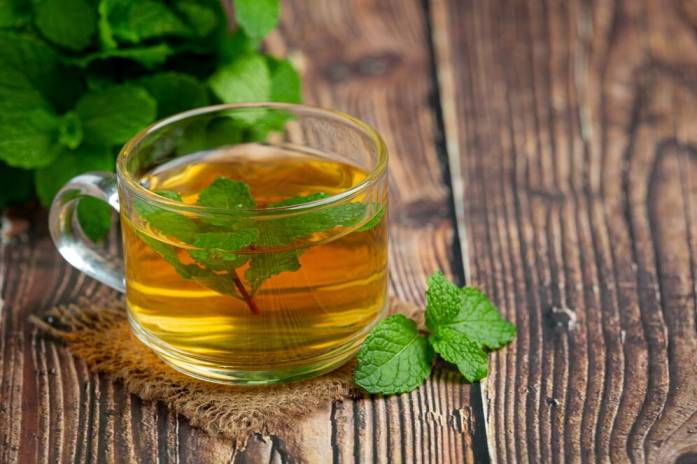
- There’s nothing a hot cup of tea can’t fix, right? It simply makes you feel peaceful. The relaxing aftertaste of a cup of chamomile tea provides a pleasing sensation of joy. If you need a little caffeine, try green tea, which is good for your memory and cognitive performance and is an alternative to coffee.
- Sipping a warm drink, regardless of flavour, has a soothing impact, but particular herbs, such as lavender and chamomile, have been proven to have relaxing effects.
- According to the Mayo Clinic, a cup of green tea has 28 mg of caffeine, compared to 96 mg in a cup of black coffee. As a result, if you’re looking to unwind, green tea may be a better option than coffee.
- Flavonoids are a type of antioxidant found in plants and fungi, as well as dark chocolate, citrus fruits, and wine.
3. Avocado
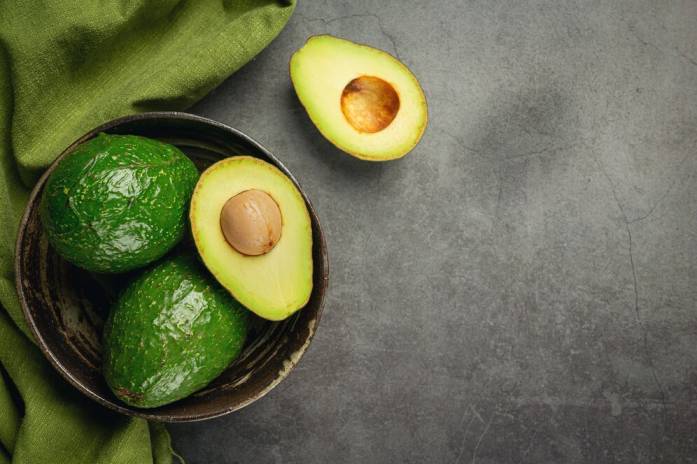
- Put some avocado slices on your bread or add several pieces of salad. This snack contains omega-3 fatty acids, which can help with stress and anxiety, as well as improve focus and mood. This superfood contains critical minerals and fibre, making it an excellent complement to your diet.
- Avocados’ potential superpower extends beyond their omega-3 fatty acids. They also include phytochemicals, fibre, and important nutrients.
- Avocado consumption may benefit heart health, brain function, gastrointestinal health, and weight control. Avocados have a low calorie density, are low in saturated fats, and are a rich source of prebiotic fibre.
4. Yoghurt
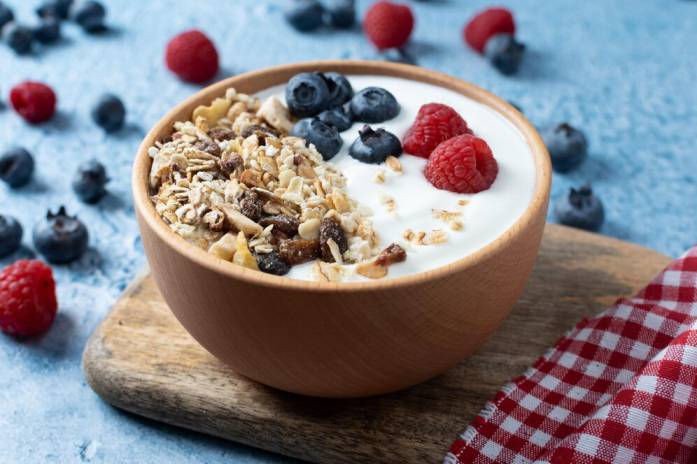
- Getting your daily dose of probiotics, or fermented food can be useful. There’s a good probability that the bacteria in your stomach are producing the stress; therefore, we need the so-called good-for-you bacteria to battle it.
- These probiotics can quickly increase your immune system, protect you from harmful bacteria, and improve digestion, all of which contribute to better gut health.
- Yoghurt is the coolest probiotic since it blends nicely with a variety of foods, including smoothies.
- Probiotics, which are beneficial microorganisms, are the best approach to supporting healthy gut hormones. Probiotics, according to Harvard Health Publishing, can help enhance the immune system, defend against dangerous bacteria, and improve digestion and nutrient absorption.
- A 2021 study discovered that taking the probiotic Lactobacillus plantarum may decrease stress and anxiety symptoms, presumably due to a link between the gut flora and mood.
5. Fruits and Citrus
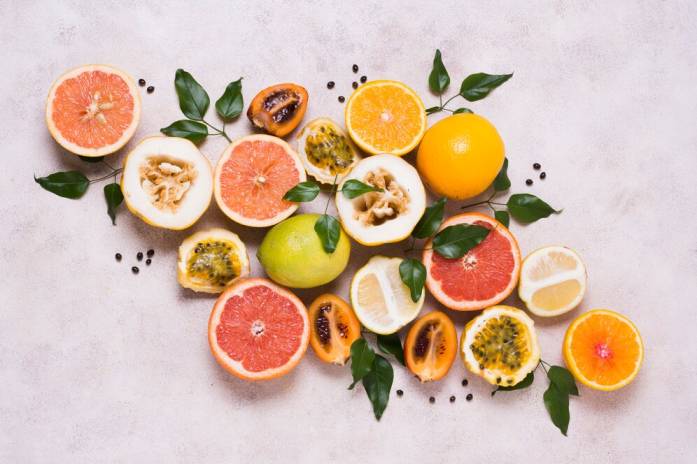
- When the stress war begins, you are always fighting an internal battle. These antioxidant-rich and citrus-filled fruits come to the rescue and stimulate your immune system to protect you and fight in your defence.
- Strawberries and blueberries contain a phytochemical that helps relieve stress. Oranges are the best source of vitamin C and a wonderful place to start when it comes to healthy snacking.
- According to some research, high quantities of vitamin C may help reduce stress. One double-blind trial found that ingesting 500 mg of vitamin C daily lowered stress levels.
- Another study discovered that taking vitamin C supplements could help with the symptoms of stress-related diseases like anxiety and depression. Consuming fruits such as oranges, grapefruits, and strawberries is a wonderful place to begin.
6. Salmon
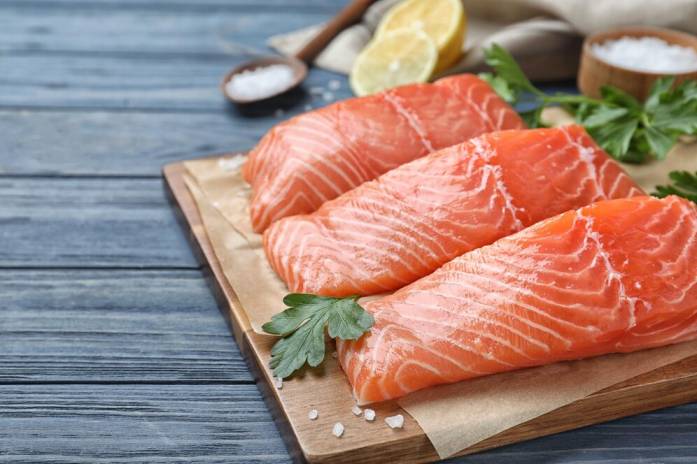
- By including seafood in your meal, you can reduce stress and help avoid heart disease. According to Harvard Health Publishing, fatty fish are a fantastic option since they are heart-healthy, and their omega-3s may help reduce sadness because the nutrients easily interact with mood-related brain chemicals.
- There are a lot of great things about salmon, and it’s always the first thing we suggest when we say you should eat more omega-3 fatty acids.
- This food is full of antioxidants, vitamins, and minerals, and it also has a lot of protein. Also, it tastes great.
7. Dark chocolate
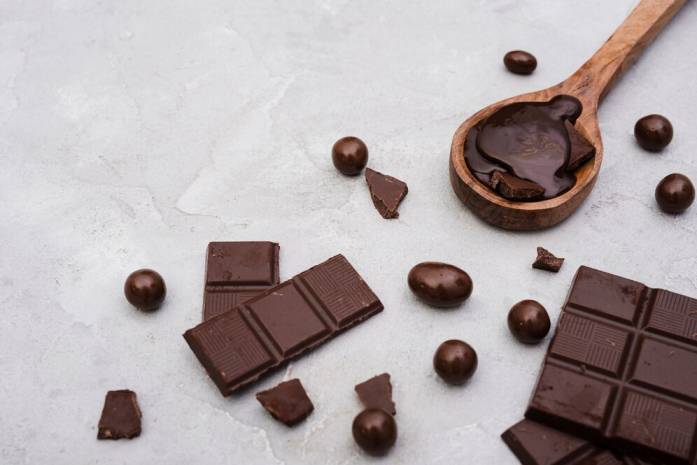
- Adding dark chocolate to your diet can help with stress in two ways: chemically and emotionally. It seems like such an unnecessary treat to eat chocolate, so just enjoying a piece can be a great treat. This feeling might even help you relax.
- A study followed people who ate about 1.5 ounces (oz) of dark chocolate every day for two weeks. The study found that dark chocolate may also help reduce stress by lowering the body’s stress hormone levels. But dark chocolate should only be eaten in small amounts.
- In other words, you should only eat about a quarter of a small, dark chocolate bar. Also, make sure the bar doesn’t have too much sugar added to it.
- It is also necessary to select high-quality dark chocolate. Look for only two or three ingredients on the label, such as cacao beans, cane sugar, and cocoa butter. Furthermore, a high cocoa content is ideal.
- According to a 2022 study, dark chocolate with 85% cocoa may increase your mood more than chocolate with 70% cocoa.
8. Spinach

- It is possible that a deficiency in magnesium can lead to headaches and exhaustion, which may increase the effects of stress.
- Magnesium levels can be increased with just one cup of spinach. The magnesium content of other green leafy vegetables is quite high.
- If you want to increase your magnesium intake, try eating a piece of salmon or soybeans that have been cooked.
9. Whole grains
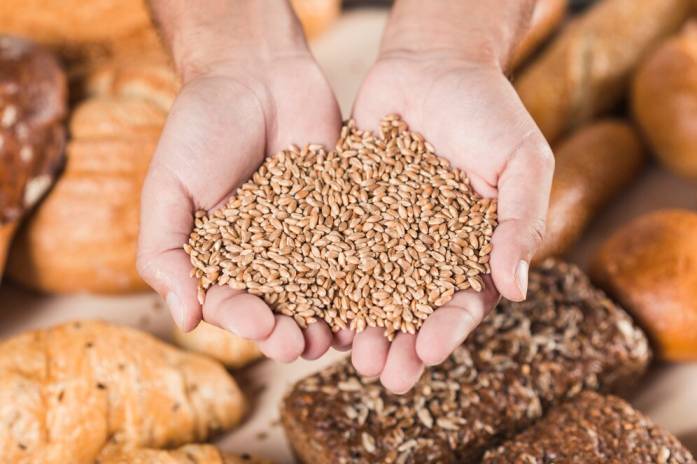
- Carbohydrates, according to the study, might enhance levels of serotonin, a hormone that improves mood and reduces stress. People who are stressed have improved concentration and focus after increasing their serotonin levels.
- To improve nutrition, choose healthy, unrefined carbohydrates like sweet potatoes and whole grains and minimise simple carbs like cookies, cake, and “white” foods like white bread.
- Unrefined carbohydrates generate a blood sugar surge and collapse. Because complex carbohydrates contain vitamins and minerals as well as fibre, they take longer to digest and have a less immediate impact on blood sugar.
- Expert recommend eating high-fibre foods like whole rye, buckwheat, brown rice, millet, and chickpeas
10. Milk
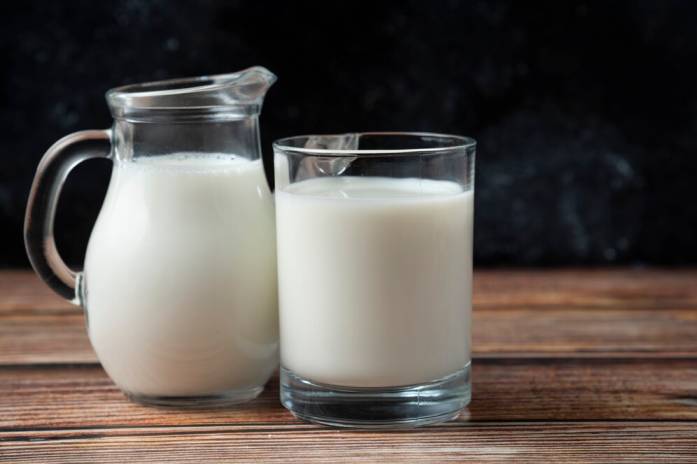
- A centuries-old home treatment for getting a better night’s sleep is to drink warm milk before bed. Warm milk can be calming on both a physical and psychological basis.
- For folks who grew up drinking warm milk before bed, the ritual, for example, can signal that it’s time to sleep. Furthermore, the act of enjoying a warm beverage while cuddled up on the couch is inherently calming.
- Calcium-rich foods are an important part of a balanced diet for bone health, but this nutrient may also help with depression reduction. In a survey of about 15,000 people conducted in 2023, symptoms of depression decreased as calcium intake increased.
- Milk and other dairy products containing calcium and vitamin D can help muscles relax and moods stabilise. According to one study, calcium may help decrease the symptoms of premenstrual syndrome.
Conclusion
In terms of foods that are effective in relieving stress, the following is the bottom line: If you eat a wide variety of foods that are primarily composed of plant-based ingredients, you will be able to improve your digestive health, which will in turn lead to improvements in your mental health. Foods that can make stress and anxiety worse, such as sugar, saturated fats, and alcohol, should be consumed in moderation. Instead, concentrate on eating more fruits, vegetables, legumes, whole grains, seafood, and lean proteins. High-sugar or high-fat diets, on the other hand, may increase those symptoms. If you need help managing your anxiety, see a mental health professional.

